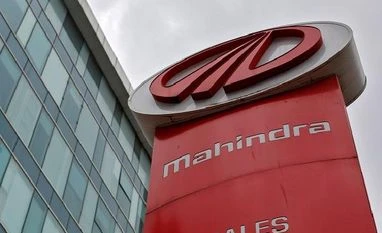Mahindra & Mahindra (M&M) has crafted an aggressive plan for the next six years for its automotive and farm equipment businesses as it seeks to enter the next phase of growth amid heightened competition and disruption from new technologies and trends.
As part of the plan, the automaker plans to launch 13 new sport utility vehicles (SUVs) by 2027. This will include eight electric vehicles (EVs). By then, it also sees at least 20 per cent of the total SUV volumes coming from EVs, the company’s executives said at an earnings call on Tuesday.
M&M will also have a new brand for electric SUVs (e-SUVs). Most of the upcoming internal combustion engine (ICE)-powered models will get a Bolero, Scorpio, Thar, and XUV moniker, said Rajesh Jejurikar, executive director, auto & farm sectors at Mahindra Group. Of the eight new EV models, four will be pure electric, the rest will be the electrified version of the existing ICE models. Mahindra plans to invest Rs 3,000 crore in the EV business till 2023-24. This includes development of e-SUVs, e-quadricycle, and electric small and light commercial vehicles. It is looking at a total of 16 EV launches by 2027. Anish Shah, MD and CEO, said, “M&M is now open to looking at funding coming in from outside.”
Apart from Tata Motors, Mahindra is the only manufacturer in the mass segment to set a target for EV penetration. Mahindra, one of the early entrants to the EV space, had to recast its EV strategy after its EV models — first as Mahindra Reva and then as e2o — failed to make any headway due to high cost of acquisition, poor range, underdeveloped charging infrastructure, and an absence of a policy push by the government.
In August 2019, it pulled the plug on the e2o — a four-door hatchback based on the Reva platform — amid flagging sales and tightening safety regulations.
Seizing the opportunity of the white space and a growing thrust on EVs by policymakers, Tata Motors launched the e-Nexon in January 2020. Since then, there has been no looking back for Mahindra’s arch rival.
Selling close to 1,000-plus units of the e-Nexon a month, Tata Motors now corners close to 70 per cent share in the personal EV segment. Encouraged by its success, it launched the spruced-up e-Tigor in August this year. The Tata group flagship plans to have 10 EVs in its portfolio by 2025. It recently raised Rs 15,000 crore for its EV arm.
“In India, it’s the home-grown manufacturers who are leading the EV charge by launching products at affordable prices and setting milestones. The multinationals have a foot in the door by launching premium offerings,” said Ravi Bhatia, president and director, JATO Dynamics — a global supplier of auto business intelligence with headquarters in Uxbridge, London.
Meanwhile, the company is looking at a 10x growth for the farm machinery business by 2027. It plans to achieve this by launching 15 products, exploring partnerships and alliances, 3x expansion in its dealer network by 2025, and setting up manufacturing facilities in Pithampur by 2023.
M&M earnings
M&M, excluding subsidiaries, reported a multifold rise in net profit for the July-September quarter. It rose to Rs 1,432 crore, from Rs 162 crore in the year-ago period. Its revenue for the quarter also went up 15 per cent to Rs 13,305 crore, from Rs 11,590 crore in the corresponding period. A high input cost however, singed margins, pulling down the earnings before interest, tax, depreciation, and amortisation by 19 per cent.
“Commodity prices have impacted our margins in both the auto and farm business, but our focus on cost management and optimisation has helped mitigate some of the impact,” said Manoj Bhat, chief financial officer, M&M.
Unlock 30+ premium stories daily hand-picked by our editors, across devices on browser and app.
Pick your 5 favourite companies, get a daily email with all news updates on them.
Full access to our intuitive epaper - clip, save, share articles from any device; newspaper archives from 2006.
Preferential invites to Business Standard events.
Curated newsletters on markets, personal finance, policy & politics, start-ups, technology, and more.
)